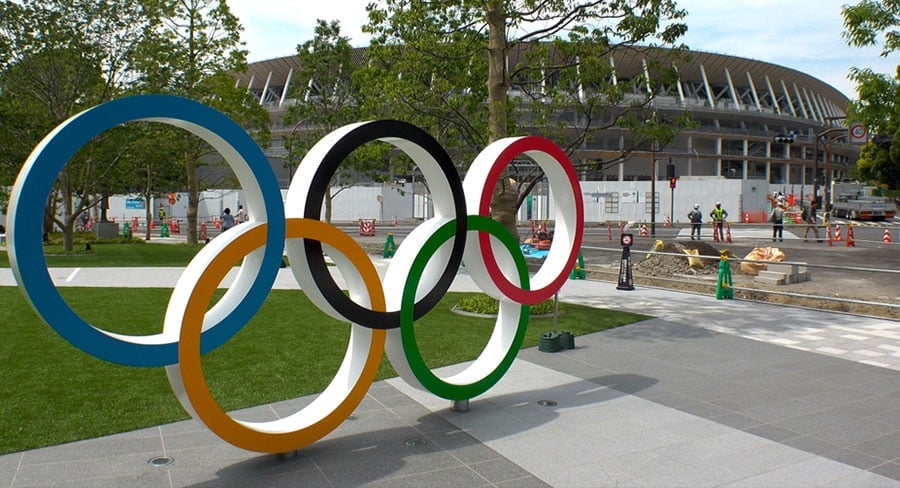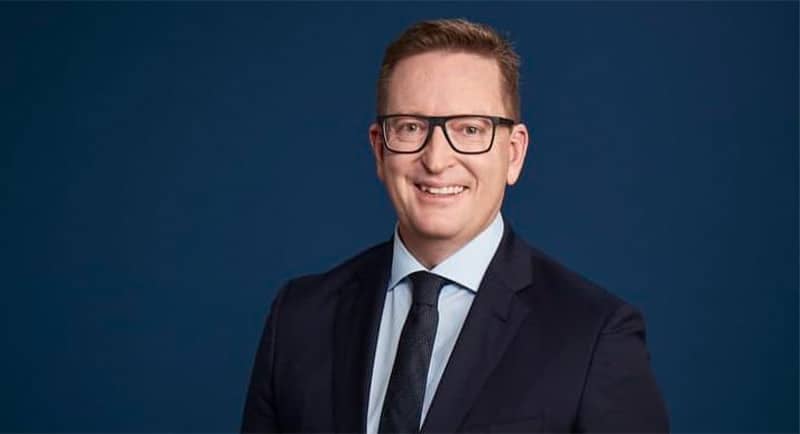On Wednesday afternoon, the International Olympic Committee (IOC) and Nine Entertainment confirmed that Nine would be Australia’s new Olympic broadcaster, with the deal lasting through to the Brisbane 2032 Olympic Games.
Nine has been awarded the exclusive free and subscription audio-visual rights, and non-exclusive audio rights to the Summer and Winter Olympic Games from 2024-2032.
The deal has cost Nine $305 million, with $10 million in contra.
Nine’s Chief Sales Officer, Michael Stephenson, spoke to Mediaweek about the landmark deal and what it means through a commercial lens.
See Also: Nine officially awarded Olympic Games broadcast rights up to 2032
See Also: “It will be absolutely huge”: Mike Sneesby on Nine’s Olympic Games deal

As a company, Nine has walked away from deals before when they haven’t made sense to the strategy – be it commercial or content. From your perspective, what made this deal make sense?
“We’ve been really clear over many years, and certainly under Mike [Sneesby]‘s leadership, that we’ve got a really clear strategy around aggregating the greatest content and distributing that across multiple platforms. When it comes to rights and purchasing rights in particular, we would only enter into deals that we believe made commercial sense – and that’s exactly what we’ve done with this deal.
“What is really clear is that consumer behaviour is changing. Increasingly, we are seeing whether that’s in a video sense or an audio sense, or people consuming content via the live stream. The Olympic Games are obviously a great accelerator for that change of behaviour, we’ve seen that historically. We’ll see it in Paris, we’ll see it in LA, and we’ll certainly see it in Brisbane. So it plays to our strategy as we continue to accelerate to a more digital future.
“At the same time, we’ve renewed our deal with the NRL, we renewed our deal with Tennis Australia, we’ve got a long-term deal with rugby. The Olympic Games is another piece in that live sport puzzle.”
You’ve got the opportunity to build some long-term strategic plans with your partners and sponsors over the next decade. What does this deal mean for advertisers?
“10 years is a long time! What that gives official IOC and AOC partners is consistency of Olympic broadcasts across multiple platforms for the long term. But it also gives all of our advertising partners assurance that Nine is, has been, and will continue to be the undisputed leader when it comes to aggregating audiences across all platforms. The Olympic Games is critical to that.
“I’m really excited about what that means for brands, because we’ve got an opportunity to have long-term conversations with a whole range of advertisers in a whole range of categories around creating the future of media with us. To me, that’s exciting because those opportunities will exist across our Total Television, our Total Audio, and our Total Publishing assets and businesses.
“The stuff that we’re going to be able to do over the next 10 years as we accelerate towards a more digital future – utilising our first-party data, utilising the strength of our existing brand, plus the Olympic rings – is something that no one has ever been able to do before. Already, we’re starting to see the incoming from brands wanting to understand what we’re doing and when we’re doing it. I think it’s going to create some fascinating conversations, and commercially the outcomes will be really positive for us, I’m sure.”
In a media call after the news broke, Mike Sneesby made the point that this is going to be a media event – rather than just a broadcast event – because it’s going across all of the different platforms that Nine operates on.
“We’re unique in Australia, but we’re also unique globally in terms of the asset base. We’ve got everything from paid subscription, television, digital, publishing, radio, live streaming, on-demand – we’ve got an asset base that is like no one else. You can literally create a marketing platform for us to accelerate your business and your brands, and you can’t do that with anybody else. The Olympic Games is the catalyst to accelerate those conversations.”
How do you approach selling an event like this? Is the fact that it is the Olympic Games enough to do the heavy lifting?
“Nothing sells itself, I can guarantee that!
“The rights were only finalised yesterday, but we’ve been thinking for quite a while about what that would look like. We’re well progressed with our thinking, albeit not finalised.
“I’m really looking forward to spending time with other international broadcasters to learn from their experiences, and to understand how they’re thinking about the future. There are a number of broadcast deals around the world that go through to 2032, I think that that creates interesting opportunities for us to learn.
“For 2024 in Paris, we’ve got a fairly clear line of sight. By the time you get to 2028 in LA and 2032 in Brisbane, the world will change dramatically. Having a future focused lens on what that will look like, and then involving advertisers and taking them on that journey with us is really exciting. With us, they’re going to get a global perspective because we will be more closely aligned with international broadcasters, taking their learnings and implementing them here with our broadcasts and amplification across all the assets.”
From a marketing perspective, how significant is the fact that Nine has broadcast rights to the Brisbane games in 2032?
“That becomes the North Star – the journey started yesterday and will continue all the way to Brisbane 32. If you think back on the impact that the Olympic Games has had on the host broadcaster throughout history, it has been incredible. It’s been game-changing for that host nation, and exactly the same thing will happen in Brisbane.
“We’ll be working closely with the local Organising Committee, with the AOC, and with all of the team that are already based up in Brisbane. All roads lead to Brissy ’32!”
